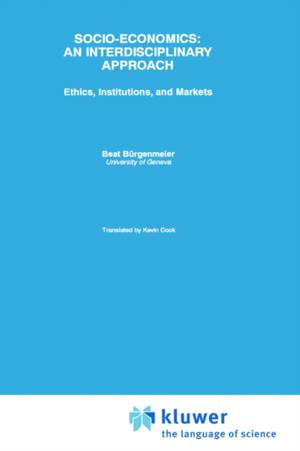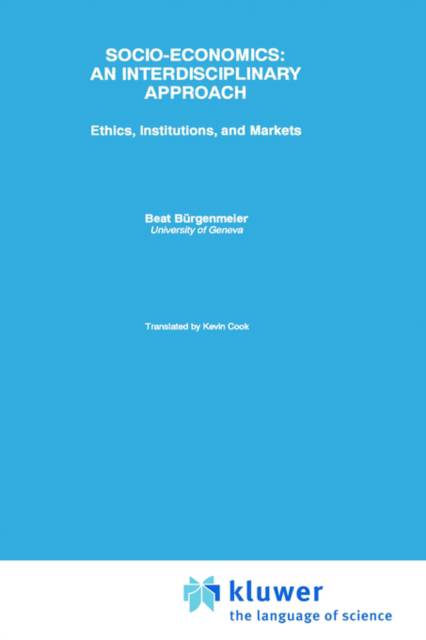
- Afhalen na 1 uur in een winkel met voorraad
- Gratis thuislevering in België vanaf € 30
- Ruim aanbod met 7 miljoen producten
- Afhalen na 1 uur in een winkel met voorraad
- Gratis thuislevering in België vanaf € 30
- Ruim aanbod met 7 miljoen producten
Zoeken
Socio-Economics: An Interdisciplinary Approach
Ethics, Institutions, and Markets
Beat Bürgenmeier
Hardcover | Engels
€ 167,95
+ 335 punten
Omschrijving
This book is intended as a warning against the kind of hard-core liberalism which blames state intervention for the disappointing results achieved in matters of macroeconomic, competition and social welfare policy. In calling attention to the social dimension of economics, the book stresses the need for an ethical yardstick which can only be pro- vided by an interdisciplinary approach to the economy. One current school of thought claims to have bridged the gap by por- traying economics as both positive and normative. However, this inter- pretation is inadequate. The positive aspect of economics, reflecting an approach common in the natural sciences, is based on observable facts. It highlights causal relationships and seeks to analyse economic mechanisms on the basis of available information. This has led to an emphasis on purely deductive methods, which form the basis for many of the conclusions in main- stream economics. This current of thought is typified by the neoclassical school, which takes as its main premise the much-disputed hypothesis of economic rationality. Human behaviour is deemed to be rational when consumers maximize their satisfaction and producers their profits, sub- ject to the constraints of income and production costs respectively. Opt- imal strategies for both consumers and producers can best be determined by the mechanism of market forces.
Specificaties
Betrokkenen
- Auteur(s):
- Uitgeverij:
Inhoud
- Aantal bladzijden:
- 190
- Taal:
- Engels
Eigenschappen
- Productcode (EAN):
- 9780792391869
- Verschijningsdatum:
- 31/01/1992
- Uitvoering:
- Hardcover
- Formaat:
- Genaaid
- Afmetingen:
- 156 mm x 234 mm
- Gewicht:
- 467 g

Alleen bij Standaard Boekhandel
+ 335 punten op je klantenkaart van Standaard Boekhandel
Beoordelingen
We publiceren alleen reviews die voldoen aan de voorwaarden voor reviews. Bekijk onze voorwaarden voor reviews.











